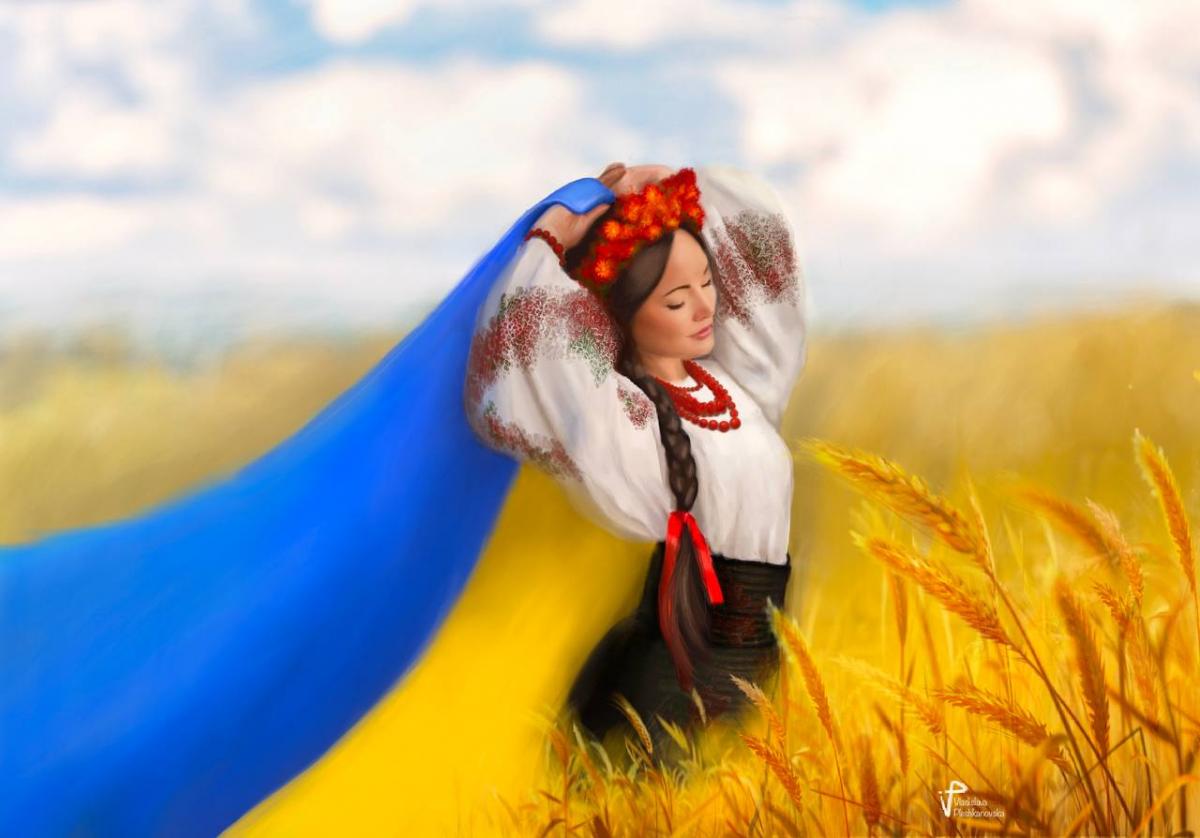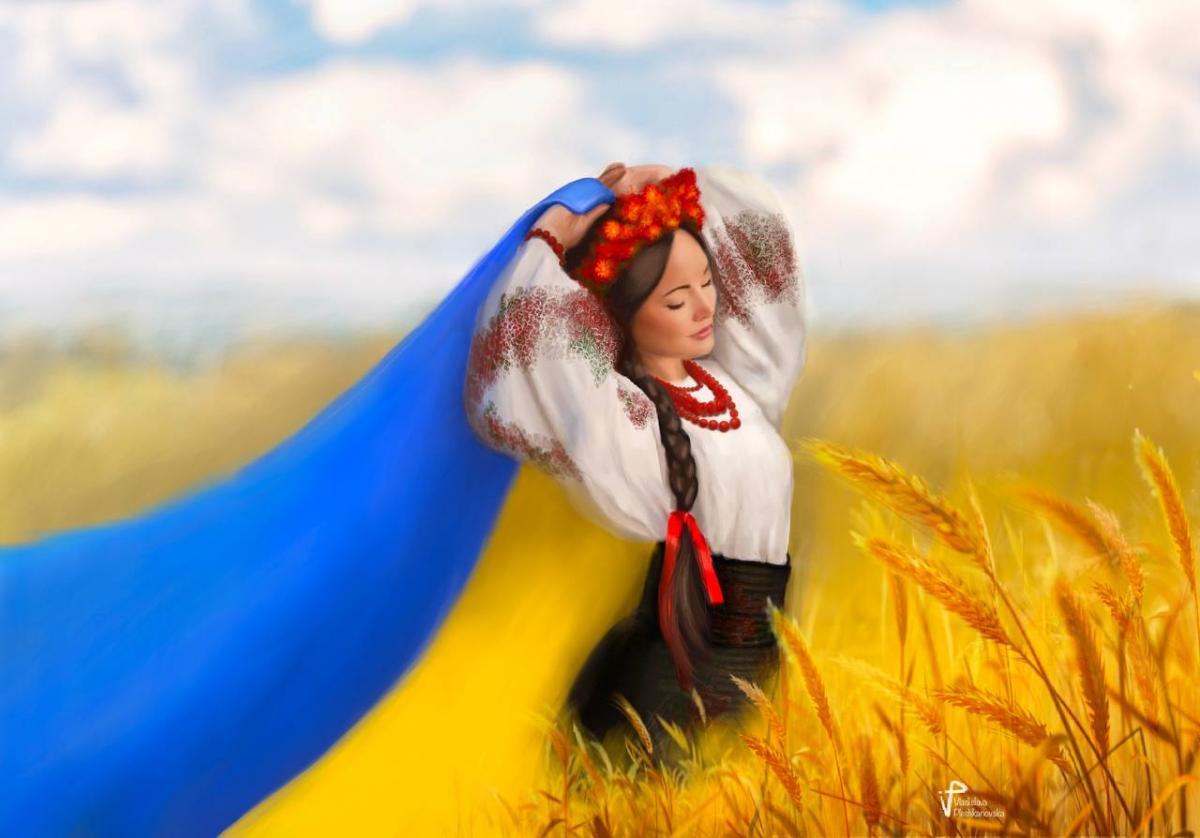A few weeks ago when I spoke with my friend Vania, he was in the dark. His face floated, seemingly untethered in the middle of the otherwise black zoom screen. When I asked how he was, he said he was fine, and then elaborated: “Happy, but not very happy.”
Vania is in Lutsk, a small western Ukrainian city, about 50 miles from the Polish border, and I am in Chestertown, Maryland. We meet twice a week to chat via zoom. He’s improving his English skills, so our conversations move slowly, with occasional pauses to use Google translate—but these are less often now than when we first met. We repeat and rephrase frequently, echoing each other to reflect back what we’ve understood and ensure that the message received matches what we’ve tried to convey. We met through a program called ENGin (www.ENGinprogram.org), which matches Ukrainian English learners with conversation buddies who are fluent English speakers for one-on-one language practice and cross-cultural exchange.
That day, Vania explained that he was happy because he’d picked up his pay from a new, better-paid coding job he’d recently transitioned into. His unhappiness was because he was in the dark. Early in the winter, the Ukrainian government instituted scheduled power cuts to manage the damage being inflicted on the national power grid by Russian attacks. The purpose of the attacks was to freeze and isolate the civilian population during the short days of the cold winter. Rolling daily blackouts, four hours on/four hours off, reduced the demand for energy while allowing a modicum of predictability so people could plan their energy usage and organize their days.
I’m familiar with Wi-Fi frustrations caused by our occasional weather-related blackouts, so I was confused about how Vania’s internet connection remained strong and stable during a widespread power outage. Internet providers would have backup power sources, but home routers and modems need electricity too. When there is no electricity in the home, there is no internet. How was this meeting happening? Vania’s eyes lit up a little at the question, and he showed me a small white box that he had built: a power bank for his internet router. With this device and a charged-up laptop, he was able to meet with an American almost 5,000 miles away to practice English and compare notes on the World Cup, the darkness of war notwithstanding.
Based on what I’ve observed in twice-weekly zoom conversations, the reporting from western news sources about Ukrainians’ stalwart response to the blackouts is accurate. They’ve been ingenious and determined. There is no question of giving in to the darkness that’s trying to envelope their country from the east, not only destroying their cities and their power grid, but trying to crush their economy, their democracy, and indeed, their very identity. When an air raid alarm interrupted us a few weeks ago, Vania glanced at his phone to check that he was safe, then continued talking. Ukrainians are coping with daily crises while focusing on creating a future, with conviction and purpose, acknowledging moments of appreciation: such as for a paycheck and scheduled—as opposed to unscheduled—blackouts. Happy, but not very happy.
Slowly, aiming for extreme clarity, Vania and I can discuss complicated subjects and ideas, from covid vaccines to nuclear weapons, his PhD dissertation topic (I confess that I did not fully understand this conversation—not the fault of the language barrier but of my lack of knowledge of anything to do with advanced engineering and powder metallurgy), and whether Ukrainian children should learn Russian. Through forty-minute glimpses into each other’s lives, we’ve compare thoughts, exchanged ideas, and forged a connection. We’ve become friends.
A few weeks ago, I met another student who shows me a different way that Ukrainians are experiencing this war. For six months, Vladislava has been living in Tenerife, in the Canary Islands, far from her family and her home city of Dnipro. She is a graphic designer and a stunningly accomplished artist with an impressive resume and a former member of the Ukrainian national rowing team. Since leaving Ukraine and her job at a print house in Dnipro, she’s been freelancing from Tenerife while looking for full-time work in Europe or perhaps the US. Vladislava and I don’t yet know each other well, but I already see her determination, her resourcefulness, and her bravery. She has allowed me to share the illustration above, which she posted on Instagram last April with this caption (translated automatically from Ukrainian by Instagram):
“I don’t want to write about pain. She is too much and getting bigger by the minute. In the second week of the war, while sitting in a asylum, I began to draw. I was slowly recovering from the shock. And this is my first job during the war. I have faith that the day will come when we all breathe and take a step. tip into a new bright and happy future. In which we will be even stronger, even kinder, even more united. And our soul will be filled with love and faith in the best. We will become a nation that only can be proud of! Together we are strong! Together we are Ukraine!”
A year ago, Ukraine was a vague, Russia-adjacent blur in the minds of many Americans. Today, even as we are collectively aghast at the wanton fury of Russian aggression carried out in full brazen view, public conversation in the US and elsewhere is riddled with questions about when the war will end and what compromise or settlement will wrap it up. Interviewers, pundits, and politicians plead for an exit strategy to make the barbarity end, and to quiet the fears that Putin stokes about nuclear weapons and further expansion of his aggression. They ask what Putin wants, as though the war itself is a negotiation strategy.
Ukrainians, from President Zelenskyy to my English student friends, echoed by historians, journalists, and diplomats with expertise in eastern Europe, tell us with unvarnished conviction and near unanimity that it’s not about a strategic agenda or a magic compromise. It is about the survival of a nation, a language, a culture, and an identity, and even more. It’s also about defining the worldwide political order in the 21st century, how we value human rights, and the strength of democratic principles.
The tragedy and pain of this war is too big for the mind to comprehend or the heart to hold, and yet human-scaled responses like conversations across oceans and borders and languages make a difference, to both sides. A filament of communication strung between individuals increases the measure of hope in the world, and diminishes fear. Acknowledgement, respect, and curiosity about Ukraine and its people are non-destructive armaments that anyone can wield in the battle against the erasure of a nation. That’s what I’m doing with Vania and Vladislava, and that’s why I’m writing about them.
You can see more of Vladislava’s art on her Instagram, at www.instagram.com/vladislava_pl/. When I asked Vania if there was anything he would like me to include in this article, he had an immediate response: “We Ukrainians respect your support from the USA and follow your democratic values, and our democracy will live on.”
After our conversation before the anniversary of the invasion, he texted me “See you on Friday then. I hope there will be no rockets)).” Let’s all hope for no more rockets, not just on Friday, but far into the future. Those of us who are safe outside Ukraine should understand, though, that as long as Russia harbors the ambition to wipe Ukraine out in the present, nullify its history, and deny it a future, the threat of rockets will hang over Ukrainian skies.
ENGin is actively seeking volunteers. Last month, they received a surge of thousands of new applications from Ukrainians seeking conversation partners. Volunteers need only be 14 or older, fluent English speakers, and able to commit one hour per week for a minimum 10-12 weeks, scheduled at the mutual convenience of the student and volunteer. I can’t recommend the organization and the experience highly enough. Information about the program and how it works is at https://www.enginprogram.org/.
Maria Wood traveled throughout the country as production and tour manager for award-winning musician David Grover, with whom she co-founded a non-profit organization dedicated to enhancing education and fostering positive social change through music and music-making. She returned to school mid-career, earning a BA in American Studies and a Certificate in Ethnomusicology from Smith College. More recently, she has written and taught on the meaning and impact of the musical Hamilton, served as Deputy Campaign Manager for congressional candidate Jesse Colvin and was Executive Director of Chestertown RiverArts. She lives in a multigenerational human/feline household in Chestertown.




Robin Wood says
A heartwarming and heartbreaking story of endurance and fragility, beautifully told.
Ming Lash says
This poignant story should be published in newspapers around the world and on social media. What better way to build hope and language competence, than to have weekly chats with a Ukrainian person? Thank you Ms. Wood, for taking action. Thank you http://www.ENGinprogram.org !
Rose Tatum says
Thank you for sharing your story and bringing attention to the plight of our friends in Ukraine. Volunteering with ENGin is such an impactful and moving experience. It’s really heartwarming to read stories like yours and I hope it encourages others to join ENGin at http://www.enginprogram.org.